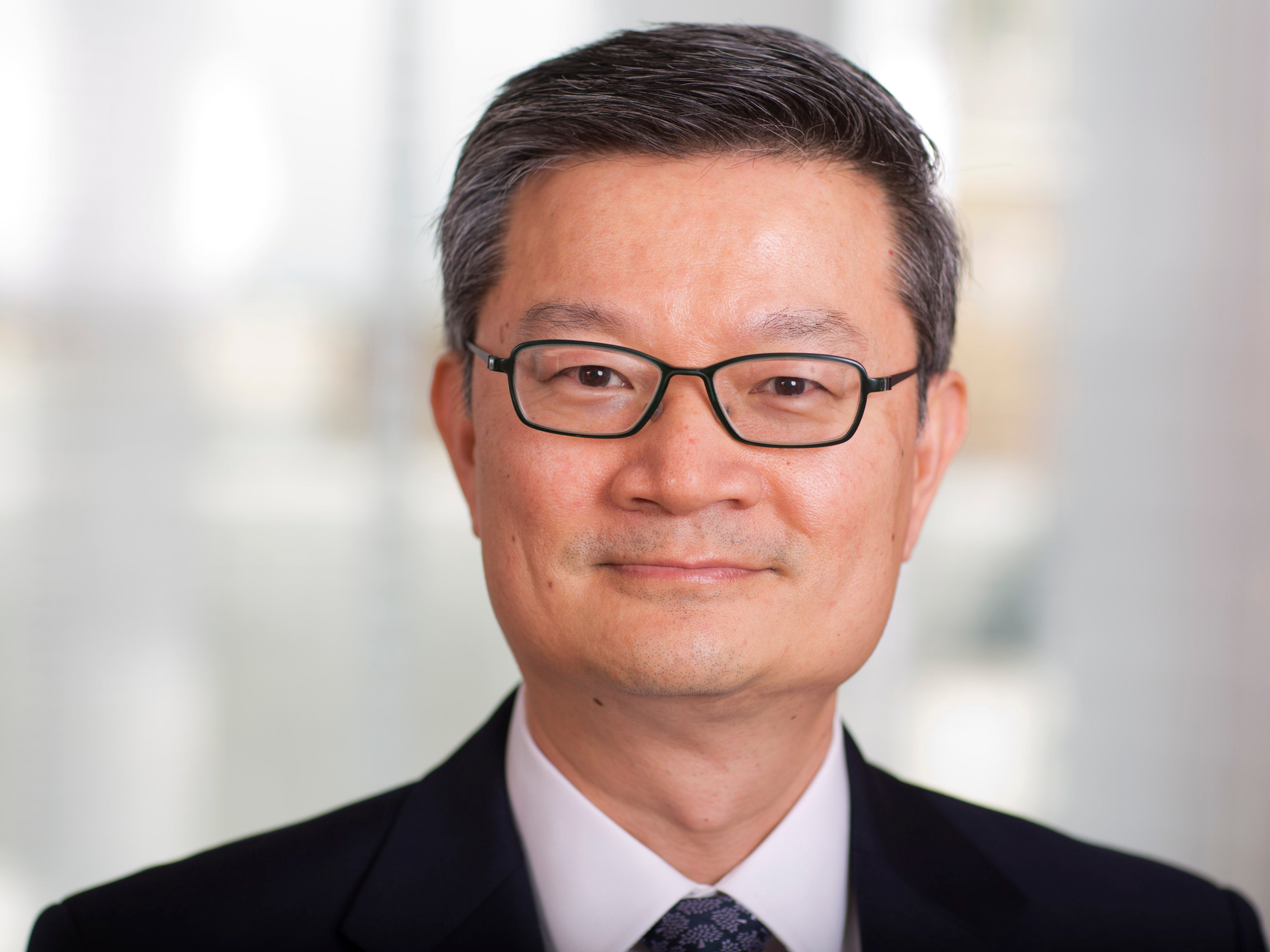
Donny Ching
Legal Director
Royal Dutch Shell
The Hague, Netherlands
Donny Ching has made a career of parachuting into countries around the world to help Royal Dutch Shell set up its energy projects. “It was the highlight of my career,” he reflects, “to go to a country full of unknowns and get the project off the ground.” Most lawyers find it difficult to handle unknown extreme legal and compliance risks; Ching says the experience has helped him develop a sense of confidence in what his legal team and Shell can accomplish working together.
Ching joined Shell in Australia just over 33 years ago, shortly after he earned his law degree. He was eager to expand his horizon and work in an international setting. But the law firms he spoke with at that time did little or no international work. A legal recruiter let him know that Shell was hiring and its business was quite global in scope. Ching says that he felt lucky at the time that the hiring manager took a risk on him as a new graduate.
He cautions, however, to “be careful what you wish for,” as he remembers his first international assignment — a job in Hong Kong slated to last 18 months that turned into seven and a half years. He rattles off the other locales he’s worked in such as Nigeria, Russia, Qatar, Abu Dhabi, Iran, and a few others that he has called home over his years with Shell: the United Kingdom, Singapore, and now the Netherlands, where he is the chief legal officer of Shell (which is titled as legal director at Shell), overseeing the delivery of all legal services to Shell globally.
The pivot
After spending his entire career working for Shell, a lot of emotions swirl around Ching’s head when energy companies are blamed for the world’s problems. There’s frustration, he admits, because people don’t realize just how much of their day is made possible by all of the products and services that energy companies provide that make people’s lives better.
From the moment someone wakes up in the morning and flicks on the lights or gets in a car and drives up the street, their world is intertwined with energy producers. “I completely agree we need to transition away from fossil fuels, but it cannot happen overnight as some people would like it to happen,” he says, summing up why he feels a touch of frustration.
Yet he also is excited about the potential that sustainable energy sources represent for the future. Shell is expanding into low carbon businesses and solutions, giving his legal team a chance to work on exciting new projects, contracts, relationships, and calibrating various levels of new and emerging risk. “I wish I was younger so I could see how it will all play out,” he says.
He knows Shell will be integral to the switch to lower carbon energy because it has capabilities that few other organizations do: experience working closely with governments all over the world, an intimate knowledge of our modern energy system, and the engineering and project management expertise to get it all done.
Lessons from the journey
Ching learned a lot as he moved around the world. Each project was different – not only because of the location but because of unique aspects to each part of Shell’s business. From chemicals to coal, he has seen many facets of the energy industry and its products.
The most challenging aspect of his career occurred recently when he was elevated to his current position because of its breadth. “As a divisional general counsel, your universe is one business,” he explains, “but when I was promoted to the global general counsel level, the world expanded, and my head exploded with the vast increase of what I was expected to know.”
The promotion was also challenging on a personal level. Ching considers himself a high-touch leader who knows everyone on the team personally and being that type of leader was not possible when he went from supervising 60 employees to more than 1,000. Employees also naturally will put their senior leaders on a pedestal. There were days when he wanted to say, “I’m still Donny!” but felt an increased distance from his team.
Over the last few decades, Ching has seen a lot of changes. He is hiring differently than he would have a few years ago. Because the energy sector is changing so rapidly, he looks to hire team members who are highly adaptable and very comfortable with rapid change and risk, which is something hard to find in lawyers, he says.
The roles required within the Legal department have also evolved over the past 10 years. “Today, I’m looking for data analysts and project managers. We’re much more open to a greater variety of different skillsets than we were in the past and how they are essential to managing the modern global legal department,” Ching says.
The GC role has evolved to be much more strategic. For every major decision Shell takes today, Ching ensures that three critical questions are asked:
- Is it legal?
- Is it ethical?
- Is it wise?
With the pivot away from fossil fuels here, those questions are more important than ever.
Getting to know… Donny Ching
Why did you decide to become involved in DEI issues?
At gatherings of the chief legal officers of large organizations, I found that I was often the only Asian lawyer in the room and/or sometimes the only lawyer of color. A colleague in Nigeria told me that my holding the role I do inspired him to strive for more because he could see what’s possible for him. As a general counsel, I feel that we must use our considerable influence to encourage others across the entire legal profession to more in this space.
What’s one piece of career advice you keep in mind?
“Never mistake your body odor for perfume.” This means don’t be so confident in your ways that you don’t listen to other ideas. After working in so many places and being around for so long, it could be easy for me to walk into a room thinking that I knew what was best. But it is better to take the time to carefully listen to and consider all ideas and value each and every stakeholder in a decision, including those that may not be in the room.
You’ve been involved in ACC for many years. What inspired you to be involved in this global organization and even join the board of directors?
Three things:
- There are just not many organizations that span the world like ACC does. It really and truly has a global impact.
- ACC is able to move from idea to outcome better than most organizations.
- ACC is a strong thought leader. From the board to ACC CEO Veta T. Richardson, there is a focus on in-house counsel that is very noble.
Learn about the ACC CLO Club, a global network for the highest-ranking legal officer.



